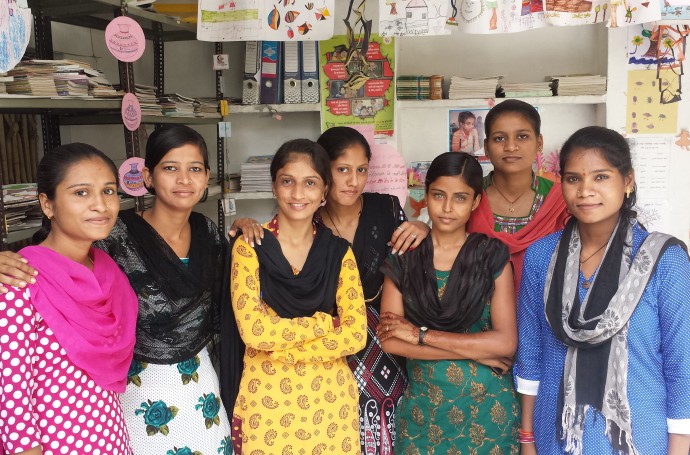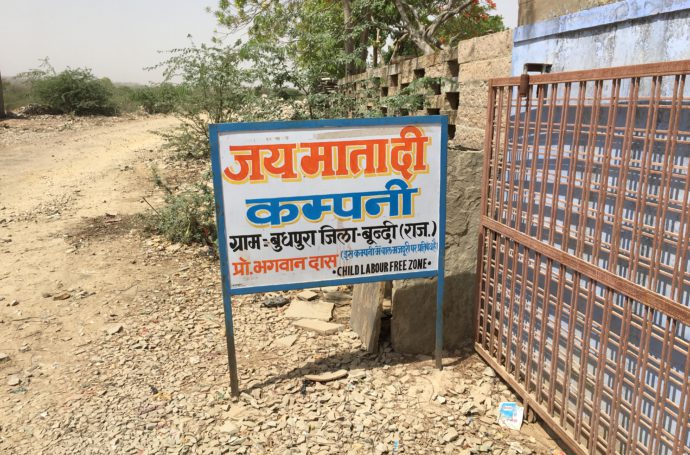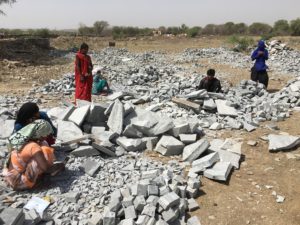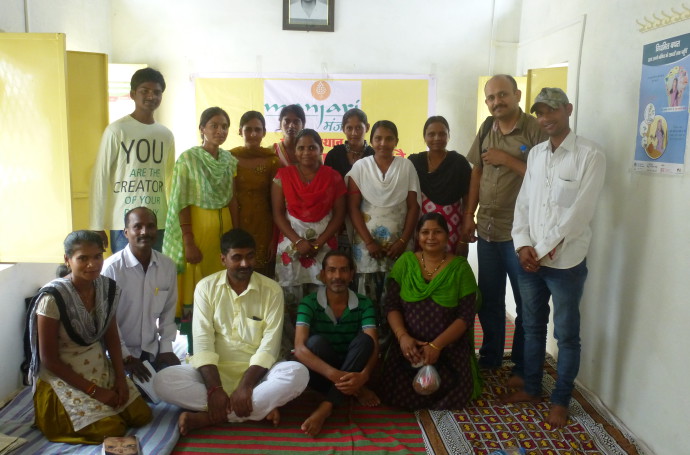A key driver of supply chain improvements will always be the private sector. Intelligent entrepreneurs will look for ways to find wins for all stakeholders. This is Bhagwan’s story.
Trade and investment in the Natural Stone Sector offer’s great potential for generating income, growth, prosperity, sustaining livelihoods and fostering local development. Under the “Getting Down to Business” project Stop Child Labour, through Manjari (A local CSO), began working with local businesses to protect the human rights of families engaged in the processing of natural stone.
Mr. Bhagwan Das has been manufacturing Sandstone Cobbles in the Budhpura area of the Bundi district of Rajasthan for the past 20 years. His father moved here when Bhagwan Das was only 2 years old. His father started a Paan (Beetle) shop in Budhpura to earn his livelihood. Due to his family conditions Bhagwan left education at the 6th grade. Initially, he started a grocery shop but he was keen to explore other avenues to increase his family income. He decided to establish a business producing sandstone cobbles. The business flourished and he established one of the largest cobble yards in Budhpura employing around 300 male/female workers.






